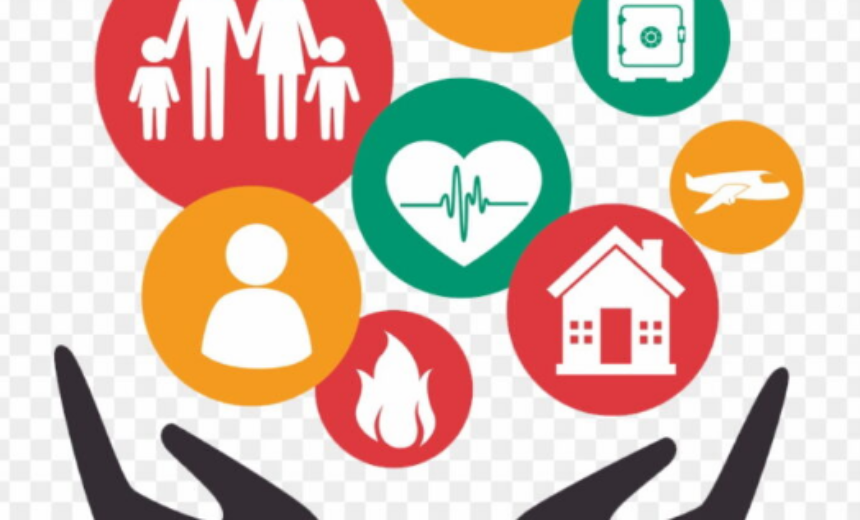What Can You Do to Promote Public Health?

Public health is a collective effort that hinges on the actions and decisions of individuals. By actively participating in promoting and implementing healthy behaviors, individuals can play a pivotal role in realizing public health initiatives.
The aim of this article is to provide a comprehensive guide on how individuals can contribute to strengthening public health, starting from adopting a healthy lifestyle and extending to advocating for policy changes.
Prioritizing Personal Health: The Foundation of a Flourishing Society
Personal health is not an isolated goal but an inseparable thread woven into the fabric of public health. The state of society’s health reflects the collective behavior and choices of individuals.
When an individual places priority on their health, they set in motion a domino effect that positively influences their family, peers, workplace, and society as a whole. By adopting healthy habits, one bolsters their immunity, reduces the burden of preventable illnesses, and curtails healthcare expenses. This cumulatively elevates the overall well-being of the entire population.
Nurturing a Healthy Lifestyle
The cornerstone of an individual’s health is nutrition. Balanced nutrition rich in fruits, vegetables, whole grains, lean proteins, and healthy fats not only fortifies one’s vitality but also lowers the prevalence of diet-related diseases.
Conscious dietary choices alleviate the strain on healthcare systems and enhance the quality of life within society.
Physical Activity for Vitality
Regular physical activity is an investment in long-term health. It strengthens the cardiovascular system, increases bone density, and improves mental well-being.
Individuals who incorporate exercise into their daily routines set an example for others, encouraging more active engagement in community life.

Prioritizing Adequate Sleep and Stress Management
Prioritizing adequate sleep and utilizing stress management techniques are pivotal for both personal and public health. Quality sleep rejuvenates the body and mind, while stress management strategies mitigate the negative impact of chronic stress on overall health.
By embracing these methods, individuals cultivate resilience that extends to their social sphere.
Preventive Measures and Their Ripple Effects
Vaccination as a Collective Shield
Consistent vaccination not only preserves individual health but also fortifies protection against infectious diseases within society. A high vaccination rate establishes herd immunity, safeguarding those who can’t receive vaccines due to medical reasons.
Regular Health Screenings
Routine health screenings detect diseases at their early stages, enabling timely intervention. This proactive approach mitigates disease progression, reduces strain on healthcare resources, and fosters a culture of healthy living.
Hygiene Practices to Combat Infections
Simple yet effective hygiene practices, such as regular handwashing, can curb the spread of infections. When individuals favor such methods, they play a pivotal role in preventing disease transmission in their immediate surroundings and beyond.
Prioritizing personal health extends beyond individual benefits; it’s an altruistic endeavor that positively impacts society as a whole. By adopting a healthy lifestyle, embracing preventive measures, and setting an example of mindful choices, individuals amplify the resonance of well-being, creating a harmonious symphony of public health.
In this symphony, every individual note matters, and together they create a healthier and more energetic world for all. At the juncture of personal and public health, let us remember that our actions, no matter how seemingly insignificant, contribute to the crescendo of a thriving society.
Health Education and Awareness: Empowering Communities Through Knowledge
Health education transcends classroom boundaries, bridging age, gender, and socio-economic divides. It is a dynamic force that empowers individuals to make informed health choices and encourages communities to take collective actions for health preservation. By disseminating accurate and accessible health information, we lay the foundation for a society where well-being, disease prevention, and a culture of health are paramount.
Community Seminars
Organizing and participating in health-focused seminars empowers individuals to take responsibility for their health. Covering diverse topics, from nutrition and physical activity to mental well-being and preventive measures, these forums provide a safe space for learning, experience sharing, and joint exploration of a healthy lifestyle.
Online Advocacy
In the age of digital technology, social media has become a potent tool for spreading health-related information. By sharing accurate health information, individuals contribute to online discourse, combat misinformation, and equip their networks with knowledge that can inspire positive lifestyle changes.
Engaging Schools and Colleges
Incorporating health education into curricula enables the younger generation to acquire fundamental knowledge for making informed decisions about their well-being. Schools and colleges serve as platforms for cultivating a mindful attitude toward health from an early age, which resonates throughout adulthood.
Information Campaigns: Amplifying Impact Through Awareness
Participating in campaigns promoting a healthy lifestyle enhances the impact of health education. Engaging in campaigns aimed at combating tobacco use, destigmatizing mental health, promoting healthy eating, and disease prevention stimulates societal involvement and fosters positive change.
Health Literacy and Expanding Rights and Opportunities
Health literacy is a gift that keeps on giving. With knowledge, individuals become advocates for a healthy lifestyle within their families and communities. The legacy of literacy spans generations and shapes a society where health is valued and safeguarded.
Education and Enlightenment in Healthcare transcend the realm of information; they are catalysts for transformation. By sharing knowledge, engaging in meaningful dialogues, and fostering a culture of mindful health attitudes, individuals and communities create a legacy of informed choices.
In this tapestry of medical enlightenment, every voice contributes to a harmonious symphony of well-being. Let’s embrace the power of education, for through it, we will shape a future where healthy choices are not just an option, but a cornerstone of a thriving society.
Supporting Vulnerable Populations
Vulnerable populations encompass a spectrum of individuals facing elevated health risks due to social, economic, or physical circumstances.
The health disparities they encounter underscore the importance of targeted efforts to ensure equal access to medical care, resources, and support. Addressing the needs of these population groups paves the way toward a healthier and more equitable society.
- Volunteering: Volunteering serves as a potent channel of support for vulnerable populations. By dedicating time and skills, individuals can become companions, assist with daily tasks, or facilitate access to necessary services. These acts of kindness not only improve immediate well-being but also foster connections that help combat isolation;
- Donations: Contributions to reputable organizations working with vulnerable populations enable significant changes. Donations can be directed towards medical services, housing support, food assistance, or educational initiatives, bridging gaps and creating opportunities for improved quality of life;
- Advocating for Policy Change: Advocacy is a powerful tool for effecting systemic change. Individuals can use their voices to champion policies aimed at addressing root causes of vulnerability, such as poverty, discrimination, and inadequate access to healthcare. Policy changes have the potential to reshape the landscape of public health and create a more inclusive society.
Cultural Competence: Adapting Care for All
Cultural competence in healthcare and support services is paramount. Understanding the unique needs, beliefs, and challenges of vulnerable population groups ensures effectiveness, respect, and consideration of diverse circumstances.
Cooperation among individuals, organizations, and institutions is key to providing comprehensive support. Working together allows for identifying service gaps, sharing resources, and building a network of assistance that supports vulnerable population groups.
Supporting vulnerable population groups is not merely a duty; it embodies compassion and solidarity. By extending a helping hand, advocating for change, and fostering an inclusive environment, individuals contribute to creating a public healthcare system where every life is equally valued.
Our efforts to improve the condition of vulnerable population groups resonate in the heartbeat of stronger communities and a more just society. Let’s remember that our collective well-being is intricately interconnected, and it is through compassion that we weave a tapestry of health and resilience for all.
Advocacy and Policy Change
Advocacy involves using one’s voice to champion interests and effect change on a broader scale. When propaganda serves the interests of public health, it becomes a driving force that influences not only political decisions but also shapes a cultural consciousness tied to health and well-being. By advocating for policy changes, people utilize their agency to enhance population health and strengthen the pursuit of well-being for all.
- Engaging Elected Officials: Elected officials hold the reins of policy-making. Interacting with them through letters, emails, or calls allows individuals to voice their concerns, propose solutions, and underscore the importance of policies that support public health. Each message sent contributes to a chorus of voices that cannot be ignored;
- Participating in Campaigns: Public health campaigns are platforms that activate collective action. By joining campaigns aimed at combating tobacco use, promoting vaccination, increasing awareness of mental health, and more, individuals broaden the reach of their voices and achieve change through collective efforts;
- Promoting a Healthy Environment: Advocating for a healthy environment is a testament to the power of individual actions. By collaborating with local authorities, community members, and organizations, people can champion policies that promote increased physical activity, expanded access to nutritious foods, and improved air and water quality;
- Utilizing Social Networks: Social media platforms serve as megaphones that amplify advocacy efforts. Sharing accurate information, personal stories, and calls to action can generate a wave of support, raising awareness about pressing public health issues and encouraging others to get involved;
- Collaborative Alliances: Advocacy gains momentum when individuals unite for a common goal. Forming alliances with organizations, networks, and coalitions enhances the impact of advocacy efforts, increasing the likelihood of resonating with policymakers and leading to significant changes.
Advocacy and policy change are not reserved for the chosen few; they are democratic tools that allow individuals to shape the trajectory of public health. Through advocacy, we bridge the gap between individual actions and systemic transformations.
By advocating for equitable access to healthcare, environmental sustainability, and policies that promote health empowerment, we plant the seeds of a healthier society. In the symphony of advocacy, each note sounds like a promise of a better tomorrow, where health and well-being flourish for every member of our global community.
Global Health Engagement
In an interconnected world, the health of one community can influence the well-being of all. Global health engagement underscores the shared responsibility for the health of every individual, transcending geographical boundaries. In this segment, we’ll explore the significance of global health engagement and demonstrate how collaborative efforts spanning continents and cultures contribute to shaping a healthier and more just global society.
Global Health Engagement: A Unified Vision
Global health engagement embodies a comprehensive approach to population health that goes beyond national borders. It envisions a world where health is a universal right, and states, organizations, and individuals collaborate to address health inequalities, combat infectious diseases, and ensure health for all.
Supporting International Initiatives
Individuals can contribute to global health by supporting reputable organizations that provide medical services, clean water, and sanitation for underserved populations worldwide. Extending a helping hand helps close gaps and empowers communities to break the cycle of poor health.
Participation in Medical Missions
Medical missions send specialists and volunteers to underserved regions. By providing medical assistance, conducting examinations, and offering educational services, these missions instill hope for those lacking access to essential healthcare services.
Global Health Research
Research into global health issues is crucial for finding effective solutions. People can back research initiatives focused on studying problems like infectious diseases, nutrition, maternal and child health, and healthcare access in resource-limited settings.
Promoting International Policy
Promoting international policies prioritizing equality and healthcare access can drive systemic changes. By urging governments and international organizations to invest in healthcare infrastructure and support health-related programs, individuals influence decisions with far-reaching consequences.
Collaborative Partnership
Collaboration among governments, non-governmental organizations (NGOs), and international entities is the driving force in the realm of global health. Partnerships allow for the collective utilization of resources, expertise, and influence to tackle health issues that no single organization can address alone.
Global Health Interaction is a testament to our interconnectedness and shared humanity. Extending beyond borders, we lay the foundation for creating a healthier and more equitable world.
Every effort, no matter how small, contributes to the tapestry of global health – a tapestry woven with compassion, cooperation, and a shared commitment to improving the well-being of every individual on the planet. In the symphony of global health, our harmonized efforts sound like a promise of a bright and healthy future for all.
Conclusions
The path to a healthy society lies in the collective efforts of empowered individuals. This article highlights multifaceted ways in which each person can contribute to strengthening population health. Every action, from prioritizing personal health to advocating for policy changes and participating in global health initiatives, impacts communities, shaping a brighter future for all.
In the symphony of public health, individual choices form the notes that create a harmonious melody of well-being. By embracing a healthy lifestyle, individuals pave the way for improved physical and mental health. Opting for preventive measures such as vaccination and regular medical check-ups provides reliable protection against diseases that affect entire communities.
Education and awareness are torches that dispel the shadow of misinformation. By conducting workshops in communities, engaging in online outreach, and collaborating with educational institutions, individuals can spread knowledge that enables informed decision-making. Supporting vulnerable population groups showcases the depth of compassion in society, proving that unity and empathy can create safety nets for the most vulnerable among us.
Advocacy and policy change become powerful tools in shaping the fate of public health. By reaching out to elected officials, participating in campaigns, and advocating for a healthy environment, individuals transition from passive roles to architects of systemic transformations. Global health engagement unites us on a global scale, reminding us that our interconnectedness transcends borders and that by supporting international initiatives and participating in medical missions, we embody ideals of solidarity and shared well-being.








